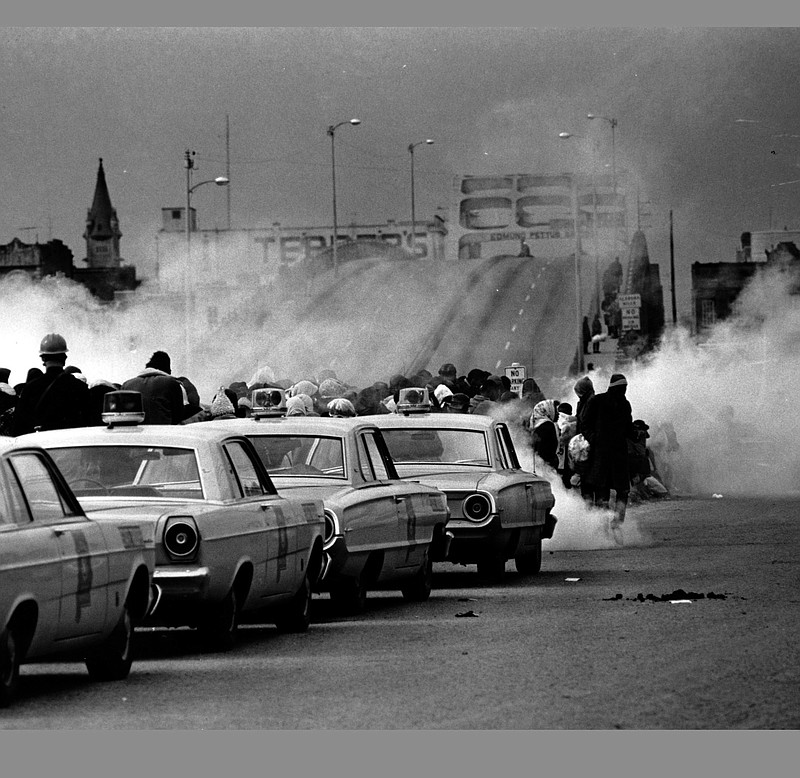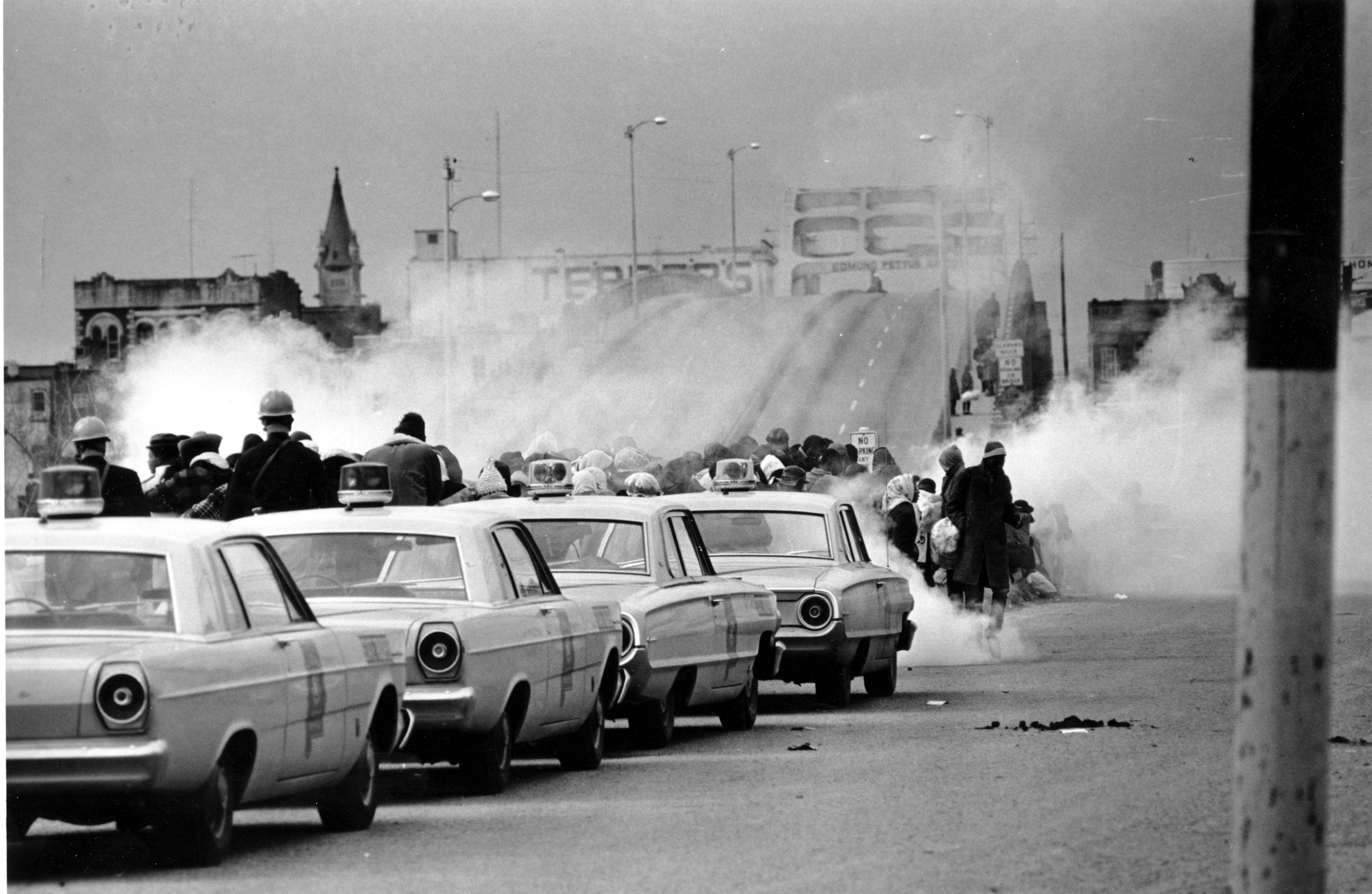SELMA, Ala. - Speakers at the annual commemoration of a key event in African Americans' fight for voting rights urged Congress to resurrect the requirement for many Deep South states to get federal approval of their election laws.
The son of Martin Luther King Jr. said blood spilled on Selma's Edmund Pettus Bridge helped pave the way for the Voting Rights Act of 1965. But a court case also arising out of Alabama led the U.S. Supreme Court last year to effectively abolish preclearance, a key provision of the Voting Rights Act.
"I'm very concerned because it is ironic that the state that helped to give us so much, has temporarily set up a scenario to take it away. That we must change," Martin Luther King III said in a speech this morning.
Thousands of people gathered in Selma on Sunday to honor the 49th anniversary of "Bloody Sunday," when civil rights marchers were beaten by law enforcement officers on the city's Edmund Pettus Bridge. Outrage over the melee helped galvanize support for the passage of the Voting Rights Act of 1965. Speakers at the annual event put the focus on the death of the preclearance provision and a slate of new voting laws, including photo voter ID requirements, being rolled out across the country.
This was the first celebration since the Supreme Court ruled last year in Shelby County's challenge to the Voting Rights Act. The court struck down the formula used to determine which states were subject to federal preclearance of their election laws. Justices said that the country had changed and the decades-old formula determining which states would be covered by preclearance was no longer applicable.
Rev. William Barber II, president of North Carolina's NAACP said voting rights and desegregation were won by the blood spilled on Selma's bridge and in the assassination of civil rights leaders.
"Every voting right, every opportunity, every taste of freedom has come through the blood," Barber said.
Barber criticized a proposal in Congress to write a new preclearance formula that would only automatically include four states.
"A fix right now that says there's not enough discrimination in voting in Alabama to make it a preclearance state. South Carolina, where they fly the Confederate flag, they don't need preclearance," Barber said.
"We have to say wait a minute, 'The Voting Rights Act was signed in blood, and when you mess with it because it's a blood document, it brings us to life,'" Barber said.
U.S. Rep. Terri Sewell, D-Selma, said people may no longer have to take tests and pay fees to be able to vote, but they have to submit photo identification.
Sewell said while that requirement may sound innocuous to some, minorities make up the bulk of people without such identification.
"We recognize those who marched that day -- and the millions more who have done their part throughout our nation's history to bend the arc of the moral universe toward justice," President Barack Obama said in a statement about Bloody Sunday.
The annual bridge crossing celebration regularly brings politicians from across the country to pay homage to Bloody Sunday. Vice President Joe Biden led last year's event. Organizers are expecting a large crowd for the 50th anniversary next year.
The celebration concludes this afternoon with a march across the Edmund Pettus Bridge.

